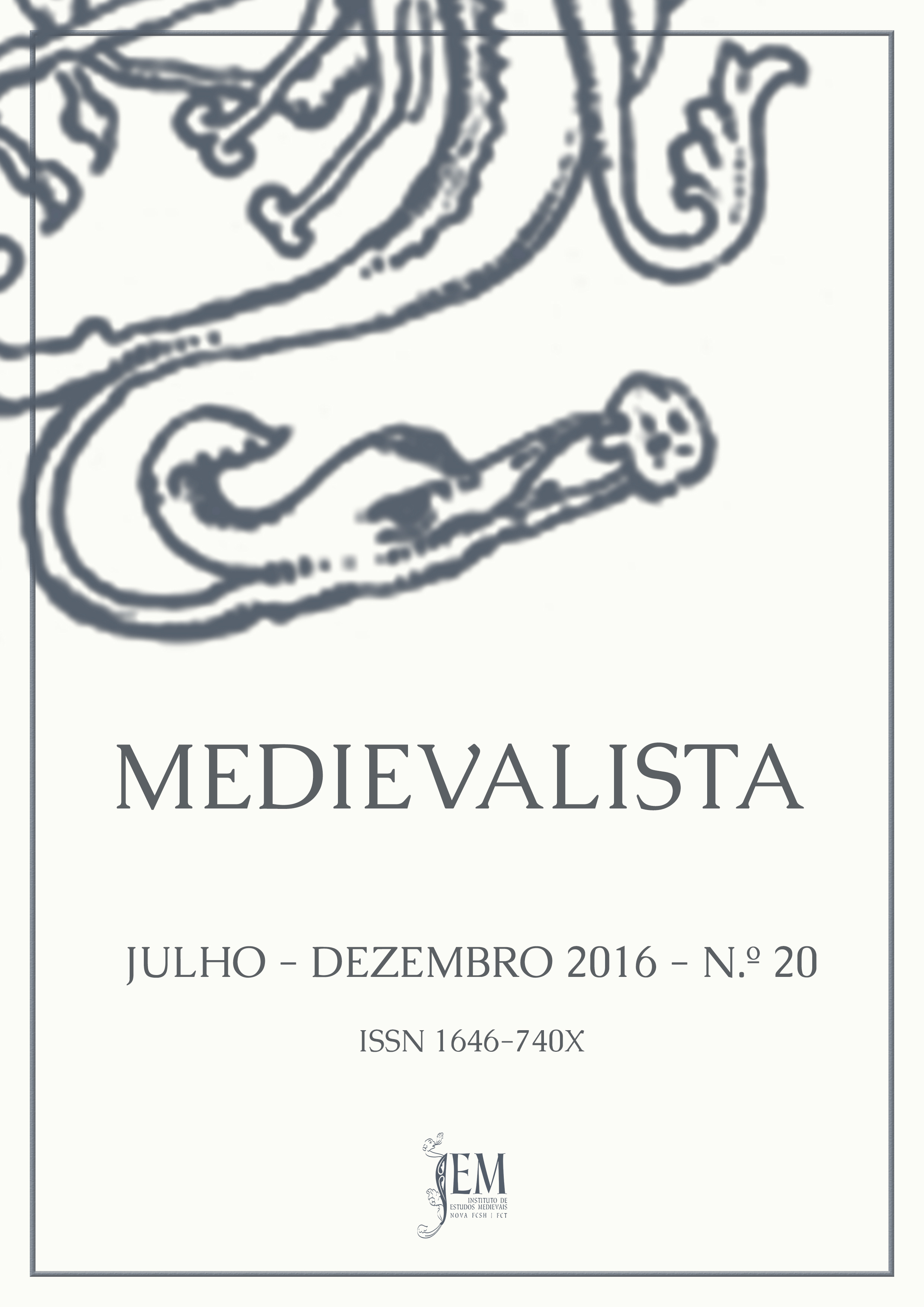The bequest of Pedro Domingues, 1335: the foundation of a chapel in honour of Dona Branca, princess of Portugal, in the church of Santa Justa of Coimbra
DOI:
https://doi.org/10.4000/medievalista.1192Keywords:
Portuguese medieval society, urban parish, medieval testamentary will, Portuguese royal familyAbstract
In 1335, Pedro Domingues, who identified himself as servant and squire of Dona Branca, princess of Portugal, made his will in which founded one chapel to celebrate his soul, the soul of his family and the soul of the princess Dona Branca. This paper presents a case study and it publishes the palaeographic transcription of the original testamentary will. More than the analysis of the behaviour of medieval society towards the dead, we want to question the function of this chapel in the social mobility of one family from the urban oligarchy. For this purpose we will specially question the particularity of the association of the name of the princess to the chapel in analysis.
Downloads
Downloads
Published
How to Cite
Issue
Section
License
Copyright (c) 2025 Medievalista

This work is licensed under a Creative Commons Attribution 4.0 International License.





















